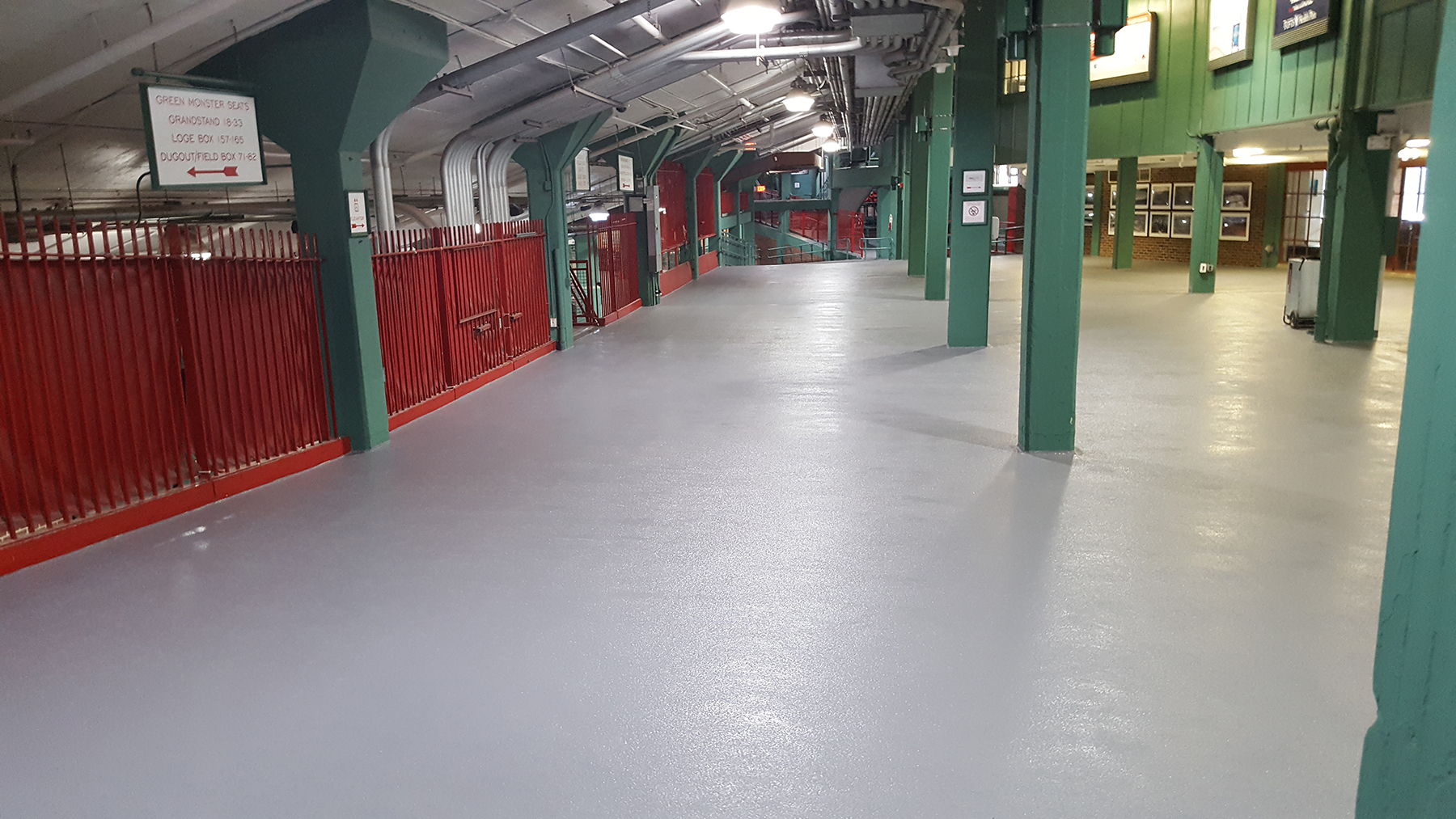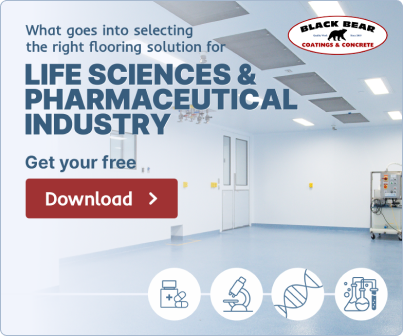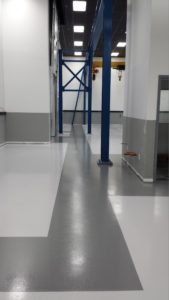
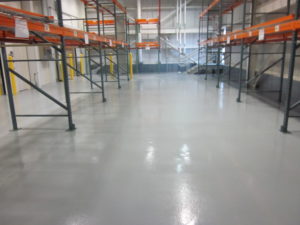
Seamless floors are a perfect solution for a wide range of businesses. Continue reading to learn 4 reasons why you should choose seamless flooring for your commercial business.
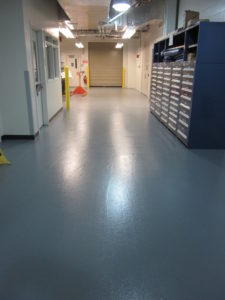
That just leaves the question of what type of seamless floor to install. The three most popular options for seamless flooring are epoxy coatings, polyurethane coatings, or polished concrete. Here’s a quick rundown of the advantages of each, and what types of usage they’re best for.
Both methyl methacrylate (MMA) and epoxy floor coatings are viable alternatives for a concrete floor. However, each has its advantages and disadvantages. Here are a few tips on which facilities and business environments are best suited for MMA floors versus epoxy floors.

- Methyl methacrylate pros and cons – MMA cures quickly, so it’s a good option for companies that want to get back to business with a minimum of disruption. It’s also a great choice for areas that are subject to extreme conditions – whether that’s temperature, traffic, or chemicals. Unlike epoxy flooring, MMA can be used in areas that reach sub-zero temperatures. This makes it a good option for food and beverage processing plants and pharmaceutical manufacturing sites. Methyl methacrylate is FDA and USDA compliant, as well as certified by the NSF. Given its tolerance to low temperatures, MMA can be used both inside and outside.
- Epoxy pros and cons – Epoxy takes longer to cure than MMA. It can be applied in a thin film or a thick overlay, depending on the building owner’s preference. Epoxy floor coatings are not suited, however, for cold temperatures. While they are a fine choice for many business environments, epoxy floors may scratch more easily than other options. For companies that are concerned about odors and emissions, water based epoxy floor coatings do exist. These are less chemical and abrasion resistant than traditional epoxies, but they are a good choice in environmentally sensitive areas.
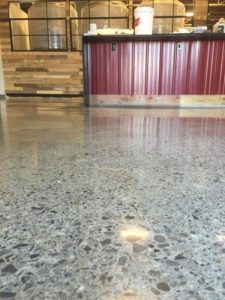
Polished Concrete, Idle Hands Craft Ales Brewery, Malden, MA
In most industries, flooring and floor coatings are a discretionary or even purely aesthetic consideration, but that’s not the case with brewery flooring. As with all food and drink-related industries, breweries have a huge number of regulations to contend with if they’re to successfully remain on the market, and many of those relate directly to the cleanliness of their production facilities.
In our own decades of experience working in industrial flooring, it seems that breweries are generally having to re-floor their facilities every seven years or so, to remain in compliance with health regulations. However, this is needlessly wasteful! Modern advances in brewery floor coatings allow for floors with far longer lifespans, which are also safer and more hygienic.
These solutions may cost a little more up-front, but they can save a brewery considerable money in the long run thanks to their low upkeep, easy cleaning, and reduced risk to workers.
Installing new flooring solutions is just one of many services Black Bear offers. We also partner with clients to help maintain existing concrete flooring and substrate using high performance resinous coatings. From diamond grind and sealers to high performance epoxy and urethane formulas engineered to mitigate risk of contamination, Black Bear offers a number of services and solutions that can breathe new life into a concrete floor and help you maintain your investment for years to come.
With a wide range of custom color chips blends available, epoxy flooring can be effective and beautiful!
When businesses are looking for the best flooring solution which can stand up to intense stressors, while lasting for years with minimal maintenance, epoxy coatings are the go-to choice. Concrete coated with epoxy creates a single seamless coated surface which is exceptionally strong, capable of supporting anything from a busy car showroom to a warehouse full of heavy equipment.
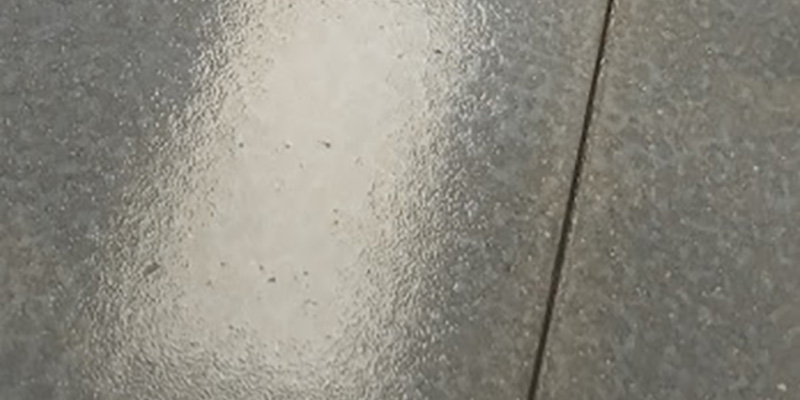
There are numerous options when choosing a flooring for your business or industrial space. Many businesses opt for resin-coated concrete, due to the single seamless surface it can create, but resinous coatings aren’t always the right fit for an application.
Sometimes, basic concrete is called for, or flooring types which are tiled. In these cases, there’s another major consideration when choosing flooring: the joint fillers. If your flooring isn’t naturally seamless, it must have good joint fillers to fill in the cracks.
Every commercial and industrial building has a flooring foundation. This flooring is expected to last for a long time but may experience substantial wear and tear. This often happens in an office, factory, or warehouse. Custom epoxy floors and resinous concrete coatings can make a significant impact in commercial applications. Business owners and facility managers find concrete coatings advantageous and end up saving money in the long run.
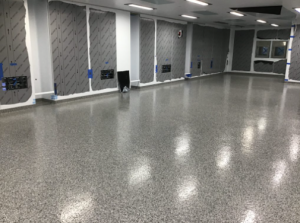
More than just a line item under the design build plan or renovation project, the right commercial or industrial floor solution can make or break a business. That said, it is not a decision that should be made without the utmost consideration and assessment.
